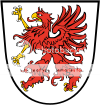A modern misconception says, that this statue was made to commemorate the defeat of the Danish, so I thought it would be fun to have it the other way around... And yes, Memel is the cornerstone of any proper empire
RIGHT! :rofl: And, just ask Germany about Memel...



